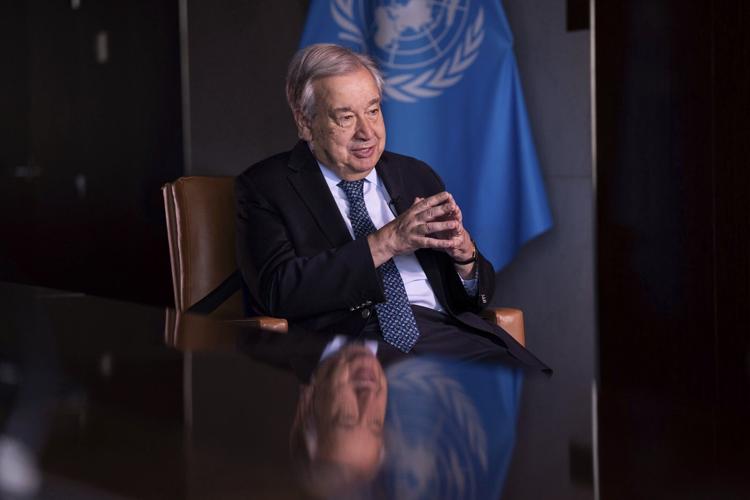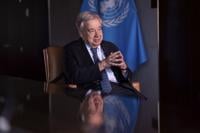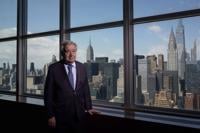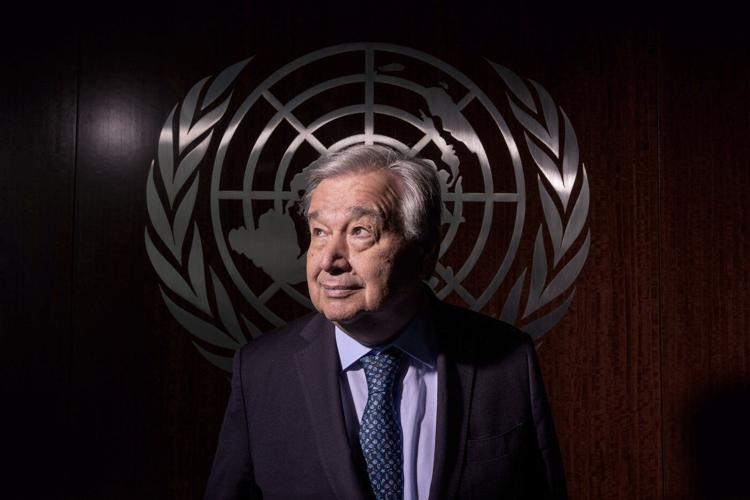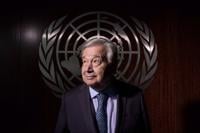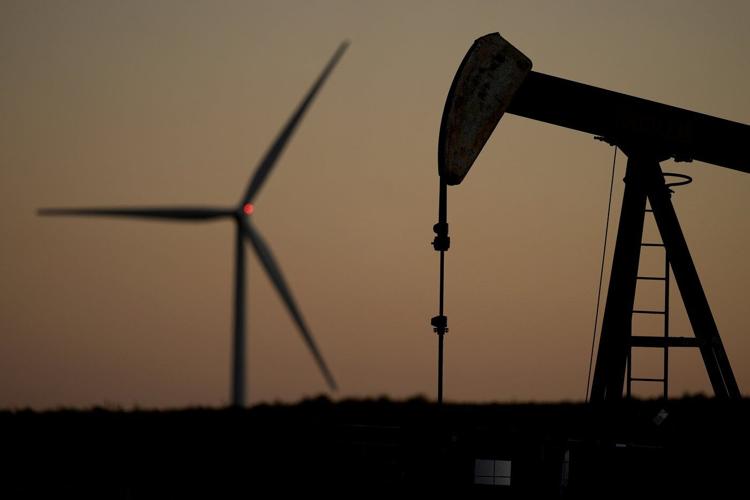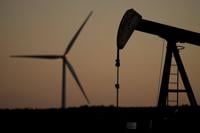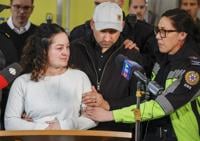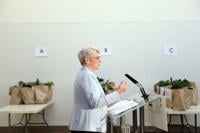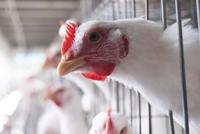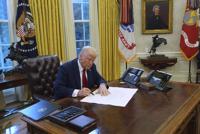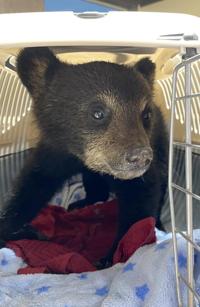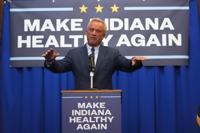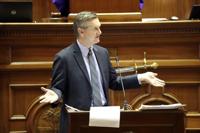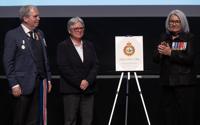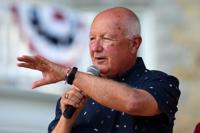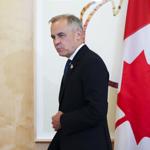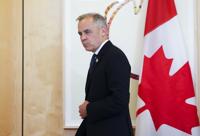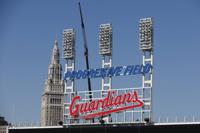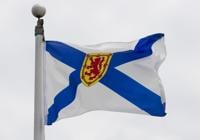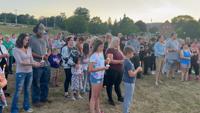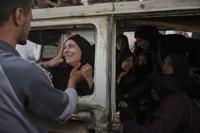NEW YORK (AP) — For nearly a decade United Nations Secretary-General Antonio Guterres has been using science to warn about evermore dangerous climate change in increasingly urgent tones. Now he's enlisting something seemingly more important to the world's powerful: Money.
In an exclusive interview with The Associated Press, Guterres hailed the power of market forces in what he repeatedly called “a battle” to save the planet. He showing the plummeting cost of solar and wind power and the growing generation and capacity of those green energy sources. He warned those who cling to fossil fuels that they could go broke doing it.
“Science and the economy show the way,” Guterres said in a 20-minute interview in his 38th-floor conference room overlooking the New York skyline. “What we need is the political will to take the decisions that are necessary in regulatory frameworks, in financial aspects, in other policy dimensions. Governments need to take decisions not to be an obstacle to the natural trend to accelerate the renewables transition.”
That means by the end of the fall governments need to come up with new plans to fight climate change that are compatible with and ones that apply to the their entire economy and include all greenhouse gases, Guterres said.
But don't expect one from the United States. President Donald Trump has slashed efforts to boost a priority, including the dirtiest one in terms of climate and health, coal.
“Obviously, the (Trump) administration in itself is an obstacle, but there are others. The government in the U.S. doesn’t control everything,” Guterres said. Sure, Trump pulled out of the Paris accord, but many states and cities are trying to live up to the Biden administration's climate-saving goals by reducing the burning of coal, oil and natural gas that release heat-trapping gases, Guterres said.
Invest in fossil fuels, risk stranded assets?
“People do not want to lose money. People do not want to make investments in what will become stranded assets,” Guterres said. “And I believe that even in the United States, we will go on seeing a reduction of emissions, I have no doubt about it.”
He said any new investments in exploring for new fossil fuel deposits “will be totally lost” and called them “just a waste of money.”
“I’m perfectly convinced that we will never be able, in the history of humankind, to spend all the oil and gas that was already discovered,” Guterres said.
But amid the hope of the renewable reports, Guterres said the world is still losing its battle on climate change, in danger of permanently passing 1.5 degree Celsius (2.7 degree Fahrenheit) warming since preindustrial times. is what the Paris agreement set up as a hoped-for global limit to warming 10 years ago.
Many scientists have already pronounced the 1.5 threshold dead. Indeed, 2024 , though scientists say it requires a 20-year average, not a single year, to consider the threshold breached.
A scientific study from researchers who often work with the U.N. last month said the world is spewing so much carbon dioxide that , a couple years earlier than once predicted, passing the 1.5 mark will become scientifically inevitable.
Guterres: ‘We need to go on fighting’ even as it looks bleak
Guterres hasn't given up on the 1.5 degree goal yet, though he said it looks bad.
“We see the acceleration of different aspects of climate change., rising seas, glaciers melting, heat waves, storms of different kinds," he said.
“We need to go on fighting,” he said. “I think we are on the right side of history.”
Guterres, who spoke to AP after addressing the U.N. Security Council on , said there's only one way to solve that seemingly intractable issue: An immediate ceasefire, a release of all remaining hostages, access for humanitarian relief and “paving the way for a serious political process leading to the two-state solution. Some people say the two-state solution is now becoming extremely difficult. Even some saying it’s impossible. But the question is, what is the alternative?”
, and are all crises, Guterres said, but climate change is an existential problem for the entire planet. And he said people don't realize how climate-caused droughts and extreme weather can feed poverty and terrorism. He pointed to the Sahel as an example.
“We see that people live in worse and worse conditions, less and less capacity to grow their crops, less and less capital,” he said. “And this is largely due to climate change.”
“Everything is interlinked: Climate change, artificial intelligence, geopolitical divides, the problems of inequality and injustice,” Guterres said. “And we need to make sure that we make progress in all of them at the same time.”
___
The Associated Press’ climate and environmental coverage receives financial support from multiple private foundations. AP is solely responsible for all content. Find AP’s for working with philanthropies, a list of supporters and funded coverage areas at .

